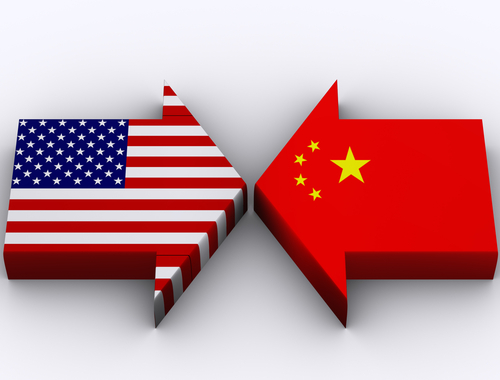The geopolitical dimensions of the US-China trade war
The economic war between the US and China has negative repercussions not only on the world economy but also on stability in general. where, crises in regions like the Middle East, for example, affect the stability of oil prices and reflect negatively on China

By Abdalla Ahmed
It is clear that the world is going through a very complex phase, reflected through the international struggle between the major powers, especially China and Russia on the one side, and the United States on the other, as it is clear that the rules of the current world order no longer fit the rising powers since China and Russia, so we may witness shifts , which takes us to the stage of preparing for a change of the current geopolitical balances in the world
However, the confrontation between the United States and China continues to cast dark clouds over the global economy. In the latest in the series of punitive tariffs on China, the U.S. government announced tariff on imports from China, China has responded by unveiling its own plan to impose retaliatory tariffs on imports from the U.S
The confrontation between the two countries is often described as trade war. However, the U.S.-China conflict is no longer just a trade dispute. It needs to be taken as a confrontation with a strategic dimension. In fact , the US views with concern China’s economic growth as well as the shift in China’s military and technical policy.
Therefore, the current economic war is a US attempt to curb the spiraling economic growth that could make China a superpower threatening the current unilateral US hegemony.
It is worth mentioning that the United States has launched in recent years several projects to confront China and Russia, including: rethinking its strategy project, which essentially included escalation in the Middle East, and NATO expansion to limit the growth of Russian influence; and the project to meet the challenges in the South China Sea, mapping strategies of China’s economic, technical and military development
The United States views with suspicion the “Belt and Road” initiative launched by China, which the United States considers it a means of economic domination of the countries, therefore seeks to derail this initiative.
However, the economic war between the two countries has negative repercussions not only on the world economy but also on stability in general. where, crises in various regions are clearly linked in some extent to this conflict, for example, the conflict and tension between Iran and the United States, as well as the conflict in Syria, where tensions with Iran affect the stability of oil prices and reflect negatively on China, which depends on the Gulf oil to some extent, and the continuation of the conflict in Syria and elsewhere prevents China from proceeding with the “Belt and Road” initiative because investment needs stability and security.
It is worth recalling that the power factors of the super powers are four: military; economic; technical; and cultural, and it is clear that the United States is still ahead of all other countries, whether militarily or economically, including absolute control over the global financial system; in high-tech areas, as well as in cultural and media domination,
Despite the narrowing of the economic gap between China and the US, China is still lagging militarily, culturally and technically, and still suffers from development-related problems in some provinces. China also does not yet have effective military power to ensure that it proceeds with the Belt and Road Initiative
The US is expected to exploit China’s weaknesses to neutralize the risk of a Chinese rally, so the conflict is expected to continue in the next few decades., so the conflict is expected to continue in the next few decades. However, the United States is not expected to face a direct military confrontation with China, Iran or With other countries in other regions,
But , the calculations may differ as well as the indicators as a result of unexpected “Black Swan” events. The United States may, as a result of miscalculations, lead to a military confrontation in the Gulf region or in other areas such as the South China Sea or in the Russian neighborhood. The outbreak of such direct military conflict could be counterproductive, and could be a prelude to changing geopolitical reality and the rise of new powers, as happened during the Suez War in the 1950s, where these miscalculations led to the collapse of the British and French empires to be replaced by the United States.
At the end , as the global struggle and conformation continues , the uncertain phase facing the world, crises will continue, the reality will change only through the development of anti-US hegemony cooperation.
The BRICS countries may have an important role if they can overcome the obstacles and difficulties they have been facing in order to reach an understanding with the United States on building a new world order that guarantees stability, development and security.
(The author is a geo-strategic analyst based in Damascus)
Great analysis by the author.